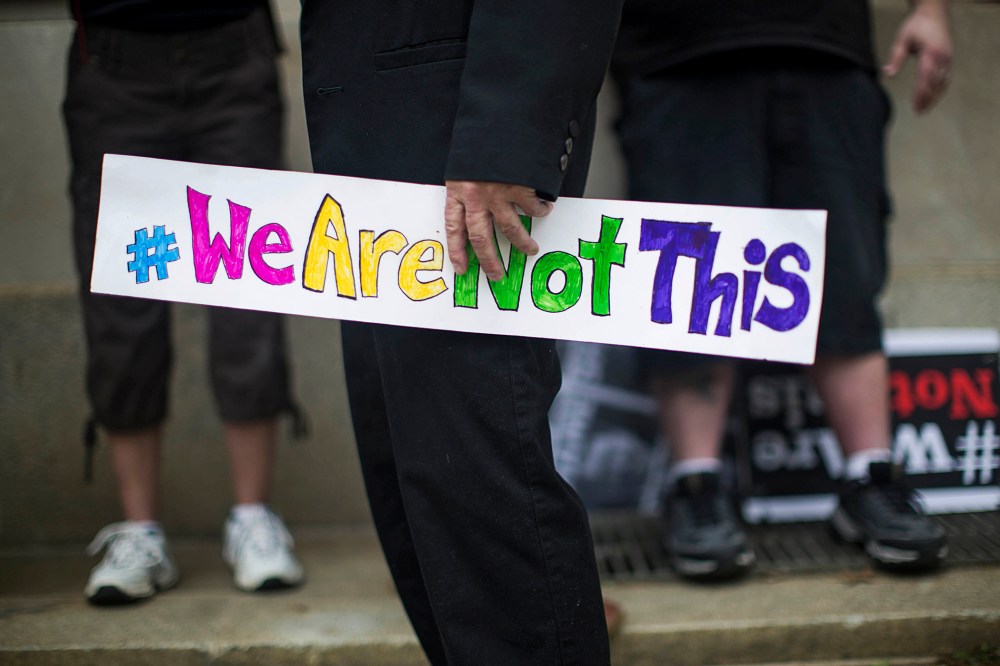North Carolina’s “Moral Monday” movement — a coalition of grassroots activists known for staging high-profile acts of civil disobedience in response to a raft of Republican-backed legislation — has a new target in its crosshairs: House Bill 2.
Fifty-four members of the coalition were arrested April 25 on charges of trespassing, violating fire code and refusing to leave the Legislative Building during a protest to mark the three-year anniversary of the Moral Monday movement. The protest also coincided with the return of the legislature for the first time since it passed the state’s controversial Public Facilities Privacy & Security Act, otherwise known as HB 2, a measure which nullified all local nondiscrimination ordinances and banned transgender people from using government building bathrooms in accordance with their gender identities.
Yet Moral Monday activists are hardly through with the so-called “bathroom bill,” said the Rev. Dr. William J. Barber, II, president of the North Carolina NAACP and the movement’s most visible leader. Quite the contrary — they’re as fired up as ever.
RELATED: NCAA goes soft on North Carolina after House Bill 2
“We are planning on coming back. Because we have to,” Barber told reporters gathered inside the Martin Street Baptist Church, about a mile away from the General Assembly, during a press conference in Raleigh Tuesday. “You cannot allow this kind of hate, this kind of a merging together of racism, homophobia, sexism, classism to go unchallenged.”
Standing alongside several North Carolinians who were arrested the week prior, Barber announced another Moral Monday event would take place on May 16. In true Moral Monday fashion, he gave few details about what the next protest would look like. However, he did not rule out the possibility of more arrests.
“Remember, now, that’s our house. That’s the people’s house,” Barber said of the Legislative Building. “We don’t go to be arrested; we go to exercise our constitutional right to instruct our legislature. If we go in a person’s office to sit in there and wait to meet with them and they chose to arrest us, really, they have the problem.”
The Moral Monday protests began in the spring of 2013 — the first year that Republicans held total control of North Carolina’s government since 1896. Traditionally, the Tar Heel state had been a rare bastion of moderation in the otherwise reliably conservative South. But with Republican Gov. Pat McCrory in office and a GOP supermajority in the legislature, North Carolina underwent a hard-right shift ushered in by legislation that cut education funding, rejected Obamacare, restricted abortion access, and made it more difficult for people to vote.
At its peak, the Moral Monday movement staged almost weekly protests and rallies at the General Assembly with hundreds of people arrested. Still, Republicans were able to hold onto their majorities in the state legislature during the 2014 midterm elections.
RELATED: Ted Cruz responds to Caitlyn Jenner’s bathroom break











